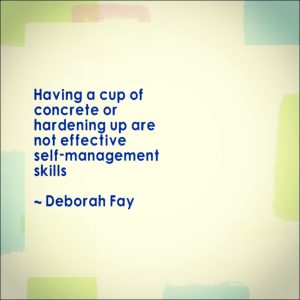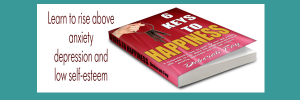Last week some of us celebrated Valentine’s Day, and while many of us were enjoying flowers and chocolates and other traditionally romantic gestures, we were blissfully unaware that an increased number of AVO and DVO breaches were taking place.
Now I don’t want to burst anyone’s bubble. I am all for celebrating love whenever and wherever possible and I myself am still enjoying the scent of the most beautiful bunch of flowers thanks to my thoughtful and loving husband, but knowing how crazy Valentine’s Day makes some people inspired me to want to write more about how we develop emotionally and explore what it might take to change what has become a culture of domestic violence.
In May last year I wrote a blog called The Measure Of A Man and I made a video about the 5 stages of developing emotional intelligence to go with it. Later in the year I wrote a blog called How To Adult which also addressed emotional intelligence, but in both of these I kept the focus on the importance of developing the first two stages.
These are both relevant to today’s blog but I want to go further into how we develop emotionally and look at the development of social awareness and how it relates to all of us, but specifically how it relates to men who become violent.
Whenever any of us act out it is essentially because we are not getting what we want and we don’t know how else to get it. It’s an immature form of manipulation, yes, but we ALL have a manipulation style (which is the topic of another blog), and over time, and with good teachers around us to model healthy self-awareness and self-management skills, or through education, we learn how to get our needs met in a much more mature and effective manner.
Sadly, if we don’t become self-aware and learn how to self-manage then we will not only self-destruct, we will probably make sure we take the people we love with us for the ride, as we see in cases of domestic violence.
When it comes to domestic violence, there is much talk about the need to teach respect for women from an early age, which is great, but it runs much deeper than that. We need to teach self-respect and help our children to develop a healthy emotional IQ so that they can effectively manage themselves when life doesn’t go according to plan, and so that they will be more aware of the impact they are having on the people around them.
As parents and caregivers, we not only need to encourage our children to be aware of their feelings, we need to encourage them to self-regulate from the earliest possible age and we achieve this by showing genuine interest in how they are feeling at various times and by asking them what they think they need when they don’t feel so good.
More important than that, however, we need to model this behaviour consistently as eventually they will have to do this for themselves.
If we do this often enough, nothing will get so out of hand or become so big that it can’t be managed. It’s like regular emotional maintenance.
Telling a child ‘she’ll be right’ or to ‘have a cup of concrete’ or ‘harden up’ does not teach a child effective self-management skills. It simply teaches a child how to push his feelings aside and how to neglect his needs and that is the recipe for an adult who doesn’t know how to care for himself adequately, and teaches him to be a victim rather than a master of his feelings.

Those sorts of comments mostly come from a parents or caregivers who want to avoid their own feelings and they are another form of manipulation (coming soon to a blog near you).
Being aware of our own feelings so that we can identify and address any underlying needs is the most effective way to model and teach these first two stages of emotional intelligence which are both necessary for us to grow up to become response-able decision makers.
The next stage in our emotional development is social awareness and we develop this as a natural consequence of being self-aware and learning to self-manage in a variety of circumstances including uncomfortable or challenging circumstances. This is how we learn theory of mind or how to become aware of and relate to the experiences of others.
Most parents and caregivers want their children to be happy and enjoy life. In order for that to happen however, our kids need to learn to manage themselves, and they need to know that they can manage themselves, in situations that are uncomfortable or challenging for them.
As parents and caregivers, we take that opportunity away from our children when we minimise their range of experiences in an attempt to keep them safe and happy, or to keep the peace.
We minimise their range of experiences when we choose to do the hard things for them, when we don’t let them experience negative feelings, when we try to make their lives perfect for them, when we save them from difficult situations, when we come between them and the natural consequences of their choices and actions, and when we fix things for them or clean up after them.
Everything in life is the result of cause and effect and if our parents and caregivers don’t give us the opportunity to fully understand this early in life, we learn the hard way later in life as we become the cause of our most painful experiences and these are most often played out within our most important relationships.
I know it is hard to see your child going through pain but if you don’t believe they can handle it, how are they supposed to believe in themselves? How are they supposed to learn that they are capable and resilient and can take care of their own needs?
You don’t have to abandon them. You can be there to guide them and support them if they want or need that. You just can’t live their life for them or fix everything for them because if you do they will never develop emotional resilience or learn to be truly happy. And they certainly won’t learn to manage themselves when life isn’t going so well.
I hope that if you are a parent or caregiver you will take this on board and start to think about ways in which you can foster emotional intelligence in the children in your care. And if you had overprotective, busy or dysfunctional parents who didn’t give you the opportunity to learn the skills you needed in order to become a resilient, effective and response-able decision maker in your adult years, think about how you can parent and grow yourself so that you can develop emotional resilience now. It’s never too late and it can be done with the right knowledge and understanding.
As a society, I would like to see much tougher consequences for violent crimes to really bring home the importance of learning new ways to manage ourselves and I would like that to be combined with more discussion, more education and higher expectations around emotional intelligence because I truly believe that when we know better, most of us do better.
If you would like to know more about Holistic Counselling and Relationship Coaching follow this link:



Until next time…
